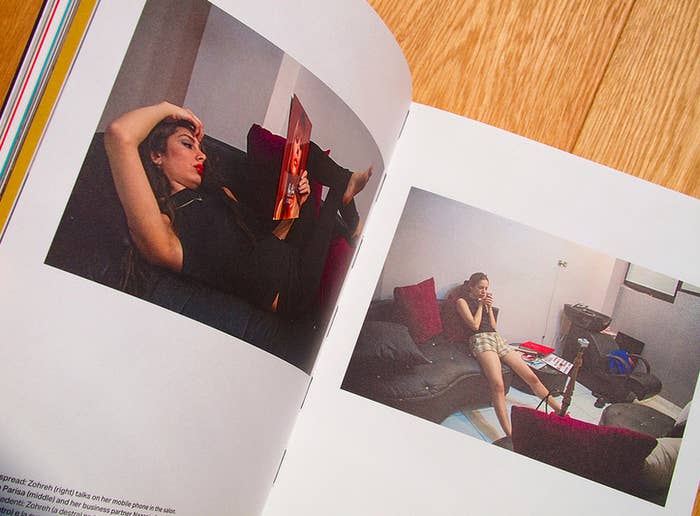
Fabrica, a "research centre, studio and school" based in Italy (and linked to the Benetton fashion group), recently released a book called Iranian Living Room, a collection of photos from inside typical Iranian homes, taken by Iranian photographers.
The concept was only vaguely political: to provide a glimpse of life in Tehran near an election not through street-level shots from the media, but in regular homes. Fabrica published the book itself, then marketed it through a prefab website that it linked to a PayPal account.
But something wasn't working. Fabrica's Dan Hill explains on his blog:
We couldn't place orders and could't figure out why (the error was a non-specific error code, with no explanation). After calls and emails to Shopify and PayPal (the PayPal office in Dublin, actually; hello, tax evasion!), it turned out PayPal was the problem.The book had been blocked, he was eventually told, because its title contained the word "Iranian," which was on some sort of "blacklist."
Pressed for more information, the PayPal rep clammed up, and Hill was told he could either change the title in the book listing or wait to see if PayPal could "whitelist" the account (but not the word). Some time later, the latter occurred. Pressed once more for clarification, however, PayPal sent Hill a boilerplate letter explaining, in part, why the blacklisting had happened in the first place. The "blacklist" the representative was referring to was most likely an automated system to prevent sales that might run afoul of international sanctions against Iran, many of which are imposed by he United States.
PayPal's compliance with the sanctions regulations include screening to detect account holders and transactions that are not supported by the PayPal system for regulatory reasons. This includes screening for transactions which are for the benefit of ?sanctioned entities? (i.e. entities which are searched on international lists to prevent financing of terrorism and money laundering) and screening against other internationally binding rules affecting local and cross border trade, as the case may be.PayPal, which has not responded to a (recent) request for comment, is a subsidiary of eBay, and likely errs on the side of caution when it comes to these kinds of things — it's a popular service for sending money overseas.
But at a certain point, caution can start to look an awful lot like censorship. "One of the implicit ideas behind the 'Iranian Living Room' project was to indicate how everyday life in Iran is not so different to ours in 'the West'," Hill writes. "Oh, the irony."
